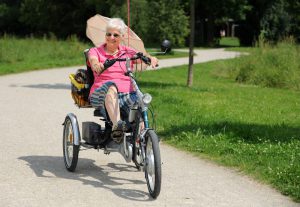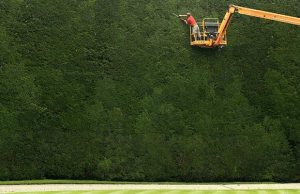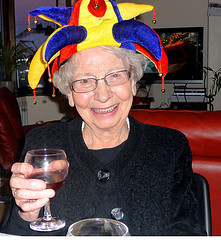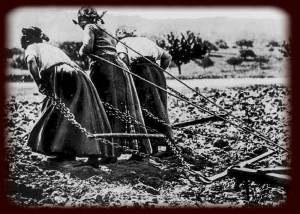Old folks on electric bikes are sure getting some very bad press these days. A report just out illustrates the close relationship between seniors, their electric bikes, and the hospital (or even the morgue). They’re reported to be going down like flies.
This does not surprise me at all, as all the seniors I know were born in the 40’s and 50’s and were die-hard rebels. They know they are going to live forever or die trying. They are also greenies when it suits them, on a fixed income, and, considering their pre-death status, have no time to waste.
 The dangerous e-bike reports are also a tad irrational. As more e-bikes are being sold, there will of course be more accidents. Logically, as well, the more elderly segment of society is buying them. We already have to deal with bad knees, replaced hips, dodgey backs and reduced lung capacity. Who needs a hill?
The dangerous e-bike reports are also a tad irrational. As more e-bikes are being sold, there will of course be more accidents. Logically, as well, the more elderly segment of society is buying them. We already have to deal with bad knees, replaced hips, dodgey backs and reduced lung capacity. Who needs a hill?
One old lady I know (several years my senior) has gleefully been riding a souped-up e-bike since the day they were invented. Several others are constantly looking into the matter of getting their speeds up on flat runs.
From my point of view the problem is not with electronic bikes and seniors it’s with everyone else—especially cars and their attitude of complete entitlement to anything paved.
Youngsters with cool traditional bikes are just plain jealous that they are being passed all the time by casual, un-sweaty, mechanically-enhanced oldies humming Beatles songs. That this geriatric segment of society can neither hear nor see very well and have almost no reflexes left is entirely beside the point.
Car drivers cannot stand them as e-bikes can approach unnervingly quickly from various directions and cannot be completely ignored (like classic bikes can) and are often spotted too late. E-bikes can get up to the speeds of scooters, but are less visible as they have no headlight or big-blobby helmet filling up the rear view mirrors. We are the stealth riders.
Of course accidents can happen. A most embarrassing incident comes to mind from a year ago in Münster—the bike capital of Europe. Stopping at an intersection (on a normal city bike) I applied simultaneously the back-pedal brake and the hand brake. I came to a complete stop and then, gracefully, I like to think, tilted sideways and the line-up of bikers to my right went down like a house of cards.
So, fellow-e-bike riders, soldier on. Be courageous, be swift, be careful, take the back roads, and stay forever young.








